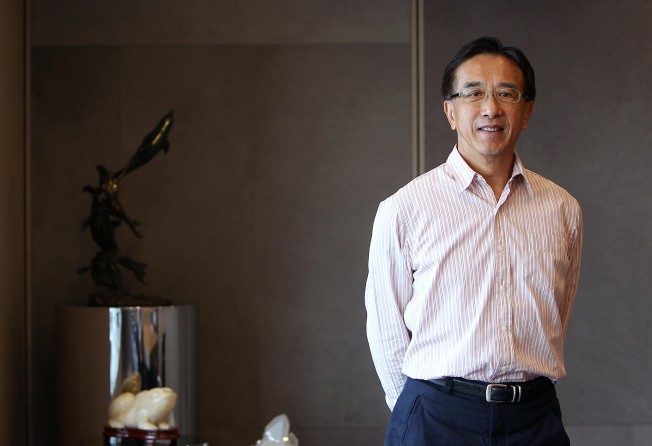Business leaders keen to maintain voting privilege
While pan-democrats fight for universal suffrage, commercial groups put forward a modified system as their plan for democracy

Pan-democrats are looking to 2020 both for the birth of universal suffrage for the Legislative Council and the death of functional constituencies. But business leaders are not giving up their electoral privileges easily.
They have come up with a "one man, two votes" plan under which business chambers and professional groups keep their right to nominate candidates, while registered voters can vote in any functional constituency, regardless of their occupation.
The plan is an extension of the system introduced last year in which an elector without a vote in another functional constituency got one in the newly created district council constituency.
Liberal Party leader James Tien Pei-chun, who used to represent the industrial and commercial sectors, suggested that instead of scrapping the functional constituencies, the voting method should be overhauled.
He suggested that while business chambers and professional groups would keep the right to nominate candidates, registered voters - including housewives and the retired - should be allowed vote in any of the functional constituencies, regardless of their occupation.
"If a [housewife] is concerned about her child's education, she can vote in the education sector; if she's worried about her father's [health], she can vote in the medical sector," Tien said, in putting forward the suggestion. "The advantage is that the choice is in the voters' hands, and … it could still fit the idea of democracy."
Democrats have long argued that the functional constituencies should go because they have a much smaller mandate than the geographical constituencies.
Last year, 40 of Legco's 70 lawmakers were elected by 3.5 million voters - including the five district council constituency "super seats" - while the remaining 30 trade-based legislators were returned by about 240,000 voters.
The largest sector is education, where some 90,000 educators are represented.
Just 125 electors from banks and deposit-taking companies in the city are eligible to vote in the financial sector. Their representative, Ng Leung-sing, was returned uncontested last year.
In 2011, the Business and Professionals Federation think tank tabled a similar proposal to Tien's, suggesting that each voter should be registered in a functional sector, while the retired, housewives and the unemployed could continue to vote for the district council seats.
Neither idea seems likely to win over pan-democrats.
On October 3, the Alliance for True Democracy, formed by 26 of the 27 pan-democratic lawmakers, suggested a "one man, two votes" system in which the functional constituencies would be scrapped.
About half of the lawmakers would be chosen by proportional representation and the remainder by a simple majority with one seat per constituency.
Alliance convenor Professor Joseph Cheng Yu-shek said he hoped business leaders would accept their proposal.
"If they are willing to sit down, we will be happy to discuss it with them," Cheng said.
Last month, Federation of Hong Kong Industries chairman Stanley Lau Chin-ho also defended the relevance of trade-based seats in the legislature, and suggested reforms including widening the voter base.